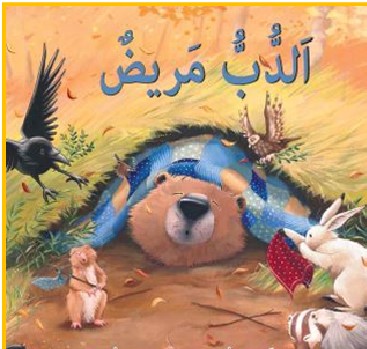
When Bear gets sick, his animal friends take care of him. They cook soup, prepare tea and think of ways to cheer him up. A story about compassion and friendship.

When Bear gets sick, his animal friends take care of him. They cook soup, prepare tea and think of ways to cheer him up. A story about compassion and friendship.
The friends in our story like to have fun together in the forest. One day, they came to pick up Bear, but he couldn’t get up. Bear is sick! How do the animals take care of their friend? Can Bear take care of his friends when they are sick?
Read MoreDear Parents,
Illness is an integral part of our lives. When we get sick, we become less energetic and isolated from others, and we may feel depressed and lonely. Sometimes we need a hand that reaches out to help us even in simple everyday matters, and we would be happy to receive even a touch of tenderness from someone close to us.
Visiting the patient and taking care of them
In our Arab culture, visiting and caring for the patient is an important social and religious value. It is an expression of helping those in need, having sympathy and showing them kindness. Visiting the patient has a recognized etiquette aimed at comforting and amusing the patient; such as greeting them with prayers for their recovery, preparing food or drinks for them, which might ease the severity of the disease, offering help, and considering the comfort of the patient.
المربّية العزيزة،
حلّ الشّتاء وأحضر معه أمطار البركة وموجات الزّكام! ولهذا اخترنا هذا الكتاب ليكون الثاني حتّى تخفّف قصّة الدّب عن الطفل المريض، وتشجّع الأطفال في روضتك على الالتفات إلى صحّتهم، والعناية بالمريض من أفراد العائلة أو الأصدقاء. إنّها قصّة جميلة تتناول موضع الرفق بمن نحبّ، ومساعدة الأصدقاء وقت الضّيق.